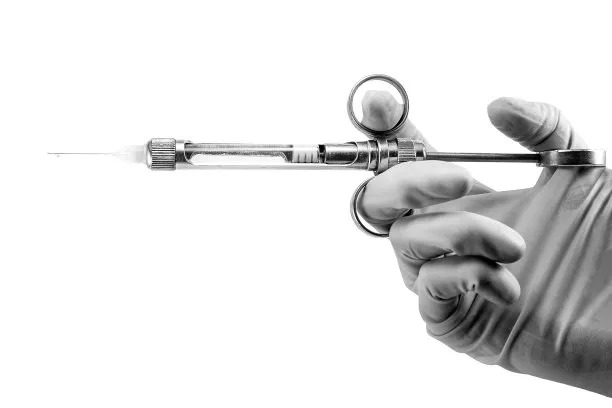Summary: Periodontal disease is a significant but often overlooked aspect of oral health. This article explores its causes, consequences, and preventive measures effectively. We delve into the different stages of periodontal disease, highlight its impact on overall health, and discuss strategies for treatment and prevention. Understanding the importance of regular dental check-ups and improved oral hygiene practices can greatly mitigate the risks associated with this condition. In this article, we aim to empower readers with the knowledge they need to maintain optimal periodontal health through education, preventive actions, and appropriate treatment options.
1. Understanding the Stages of Periodontal Disease

Periodontal disease progresses through several stages, starting with gingivitis, which is characterized by inflammation of the gums. Gingivitis is typically caused by plaque accumulation and is often reversible with proper oral care. Symptoms include redness, swelling, and occasional bleeding during brushing or flossing. Recognizing these early signs is crucial for effective intervention.
The next stage, known as periodontitis, occurs when untreated gingivitis advances. At this point, the inflammation extends deeper into the supporting structures of the teeth, which gives rise to pocket formation and potential bone loss. Individuals may experience persistent bad breath, receding gums, and tooth mobility.
Lastly, advanced periodontitis can lead to significant tooth loss and severe damage to the jawbone. Understanding these stages allows individuals to act promptly and seek dental care before the disease becomes irreversible.
2. Impact on Overall Health
The implications of periodontal disease extend beyond the mouth; it can adversely affect overall health. Numerous studies have shown a strong correlation between periodontal disease and systemic conditions, including cardiovascular disease, diabetes, and respiratory disease. Inflammation caused by periodontal infections can influence blood sugar levels and cardiovascular health, showcasing the systemic nature of this condition.
Moreover, pregnant women with periodontal disease may face complications, such as preterm birth and low birth weight. The connection between oral health and pregnancy highlights the importance of maintaining healthy gums during this crucial time.
Given these relationships, addressing periodontal issues is essential not just for oral health but for safeguarding overall well-being. Regular check-ups help to mitigate this risk by facilitating early detection and prevention strategies.
3. Strategies for Prevention
Prevention of periodontal disease is largely centered on adopting effective oral hygiene practices. Daily brushing with fluoride toothpaste, along with regular flossing, is vital in controlling plaque buildup. Additionally, using antiseptic mouthwash can help reduce oral bacteria, further supporting gum health.
Regular dental visits are equally important; professional cleanings remove tartar that can’t be eliminated by brushing alone. Dentists can also provide guidance on proper techniques tailored to individual needs, enhancing the effectiveness of home care routines.
Diet also plays an essential role in periodontal health. A balanced diet rich in vitamins and minerals can strengthen the immune system, helping the body fend off infections, including those in the mouth. Foods high in antioxidants may assist in promoting tissue health and combating inflammation.
4. Treatment Options for Periodontal Disease
For individuals diagnosed with periodontal disease, various treatment options are available, depending on the severity of the condition. Non-surgical treatments, such as scaling and root planing, aim to clean the pockets around the teeth and remove bacteria and tartar accumulation. This process can significantly improve gum health.
In more advanced cases, surgical intervention may be necessary. Procedures like flap surgery or bone grafts aim to restore lost tissue and support surrounding structures. These methods can help in re-establishing both aesthetic and functional aspects of oral health.
Additionally, recent advancements include the use of antimicrobial agents and laser treatments, offering effective solutions to manage periodontal infections. Understanding these treatments empowers patients to take an active role in their oral health care journey.
Summary:
In summary, periodontal disease is not merely a dental concern but a health issue with far-reaching consequences. Understanding its stages, recognizing its systemic impacts, adopting preventive measures, and exploring treatment options are key steps in maintaining periodontal health. By fostering awareness and knowledge, individuals can significantly reduce their risks and enhance their quality of life.
This article is compiled by Vickong Dental and the content is for reference only.
Vickong Dental
Vickong Dental is a large medical group established in Hong Kong in 2008 by professors from well-known medical universities in Guangdong and Hong Kong, as well as medical doctors from key national '985' universities (including Master's supervisors and senior professors). The chain of branches brings together expert dentists with PhDs and Master's degrees from Hong Kong and Mainland China, committed to providing high-quality dental treatment.
"Vickong Dental Practices the University Motto of 'Healing and Serving Society,' with a Stable Operation for Sixteen Years. It Has Been honored with Hong Kong Enterprise Leaders's Choice,' and is a Global Trusted Implant Center for the Nobel Implant System. Recommended by Hong Kong Metro Broadcast and Guangdong Television, it Serves Customers from Over Thirty Countries and Regions, Gaining the Trust and Favor of Citizens from the Guangdong-Hong Kong-Macau Greater Bay Area and Surrounding Cities.

Thousands of customers' unanimous praise
The most recognized and highly recommended dental service by customers in the Guangdong-Hong Kong-Macau Greater Bay Area
We Ensure You Receive Detailed Care and Attention Here
Hong Kong standards, Shenzhen prices, Your Trusted English-speaking dentists

Vickong Dental Medical-Grade Instrument Disinfection Process
Vickong Dental Medical-Grade Instrument Disinfection Process

Vickong Dental Chain: A Warm and Comfortable Environment for Treatment






Appointment Hours

Q&A
Why choose Vickong Dental?
Vickong Dental practices the university motto 「Medicine to Benefit Society」, with each branch bringing together highly qualified dentists with doctoral and master’s degrees from Hong Kong and the Mainland, and has maintained seventeen years of steady operation。Recipient of 「2024 Hong Kong Enterprise Leaders Brand」, 「2025 Hong Kong Enterprise Leaders Brand」, a Nobel Biocare Global Trusted Implant Center, and a brand recommended by Metro Radio Hong Kong and Guangdong TV。
To date, we have served customers from more than thirty countries and regions,earning exceptionally high word-of-mouth recognition and trusted recommendations from residents across the Guangdong-Hong Kong-Macao Greater Bay Area and surrounding cities
We have eight major branches in Zhuhai、Shenzhen,and a consultation and service assurance center in Hong Kong,so you can book a free consultation at any time for any questions,which is very reassuring.
If I do not accept the quotation after the CT scan, will I be charged??
No! As long as the actual treatment has not started, you will not be charged any fees.
Will there be any additional charges during the treatment process?
No, there won’t be any additional charges. Before treatment begins, we will clearly explain the treatment plan and its corresponding fees. Only after the patient agrees and signs the consent form will we proceed with the dental service.
Can I pay in Hong Kong dollars?
Yes. Vickong Dental accepts payment in Hong Kong dollars. The amount will be converted based on the exchange rate of the day, and the applicable rate will be clearly communicated to you in advance.
Can I reschedule my appointment at any time?
Yes. Please contact us via **WeChat** or **WhatsApp** as early as possible, providing your original appointment time and details, along with your preferred new date and time slot for rescheduling.













